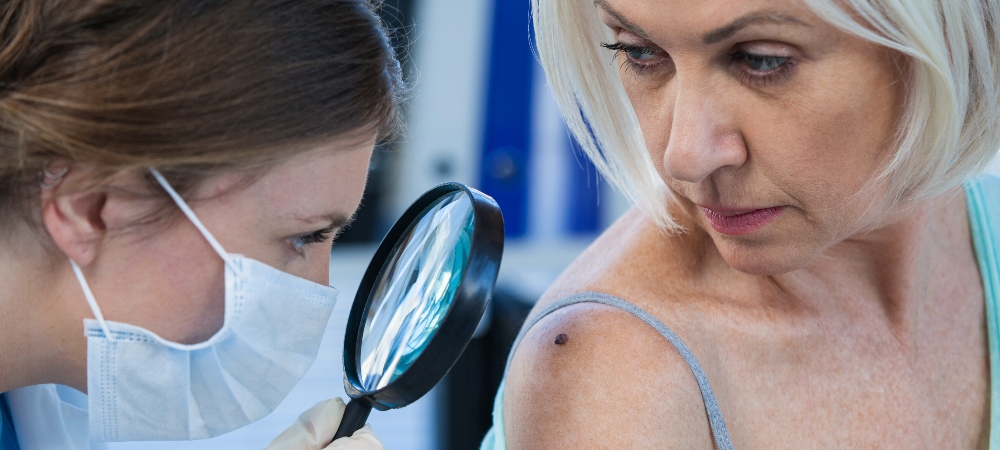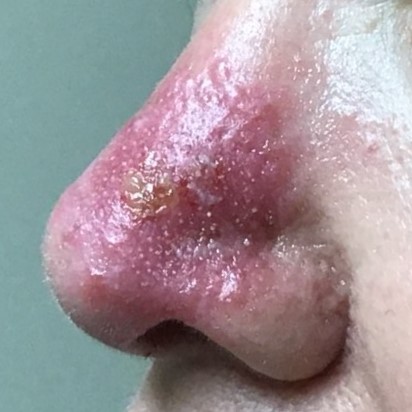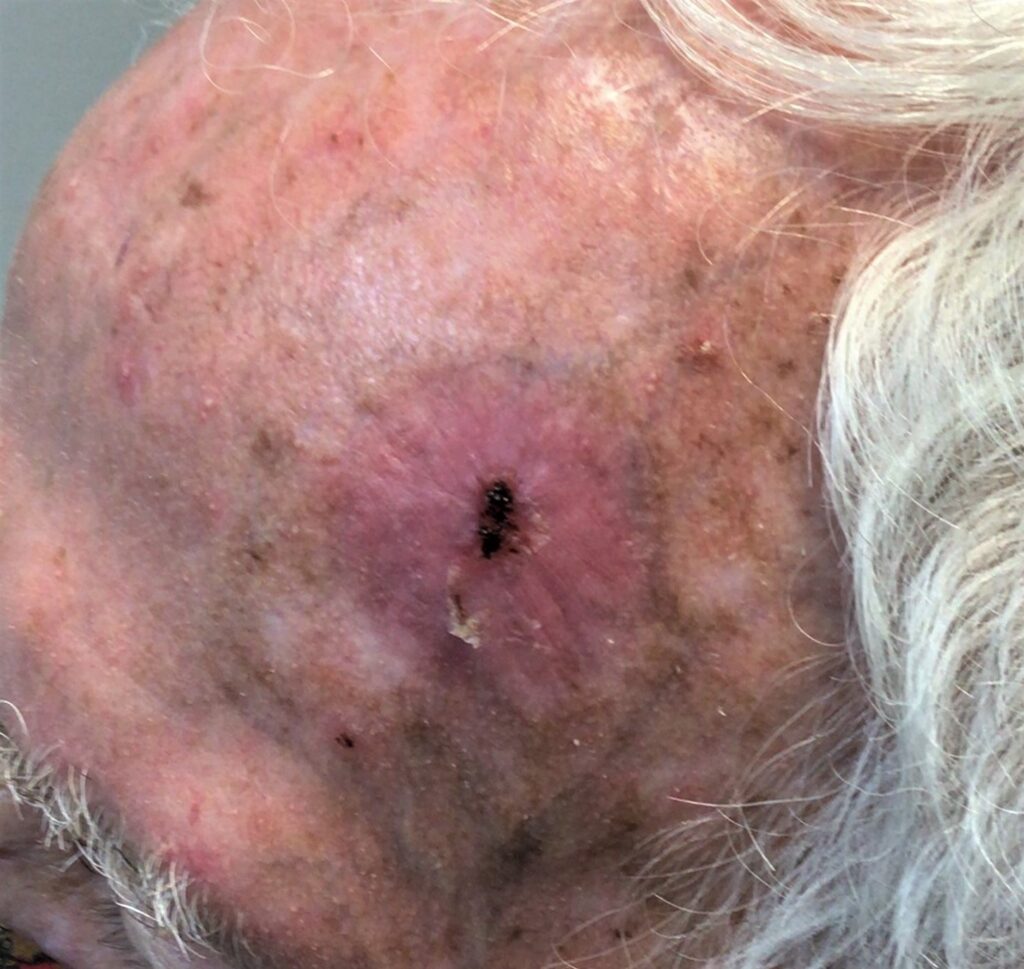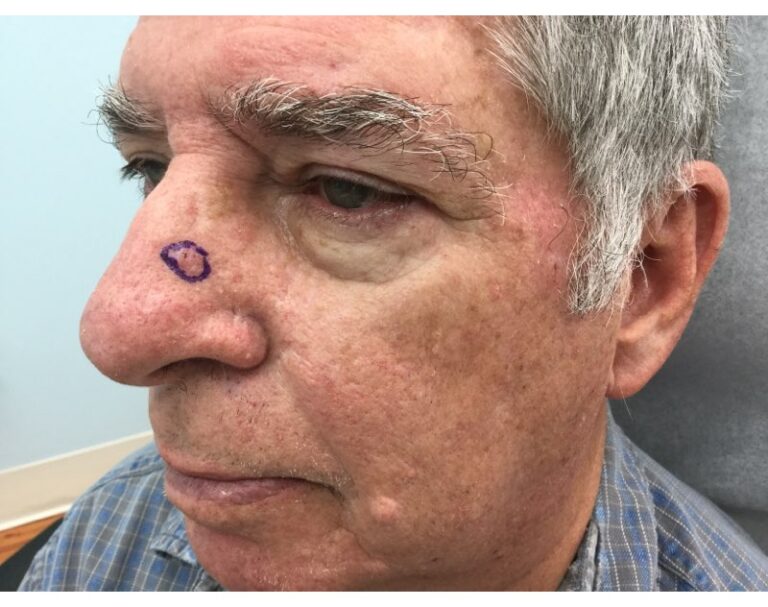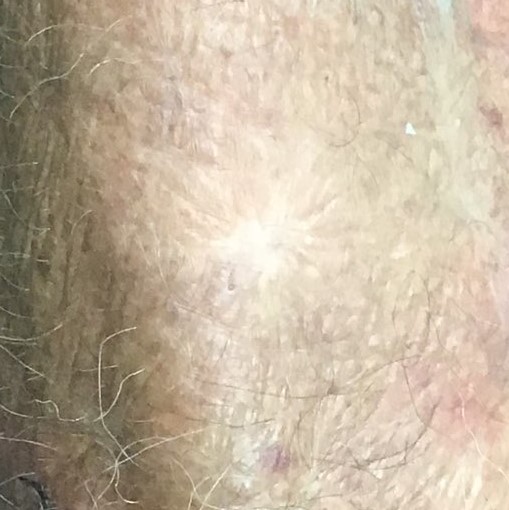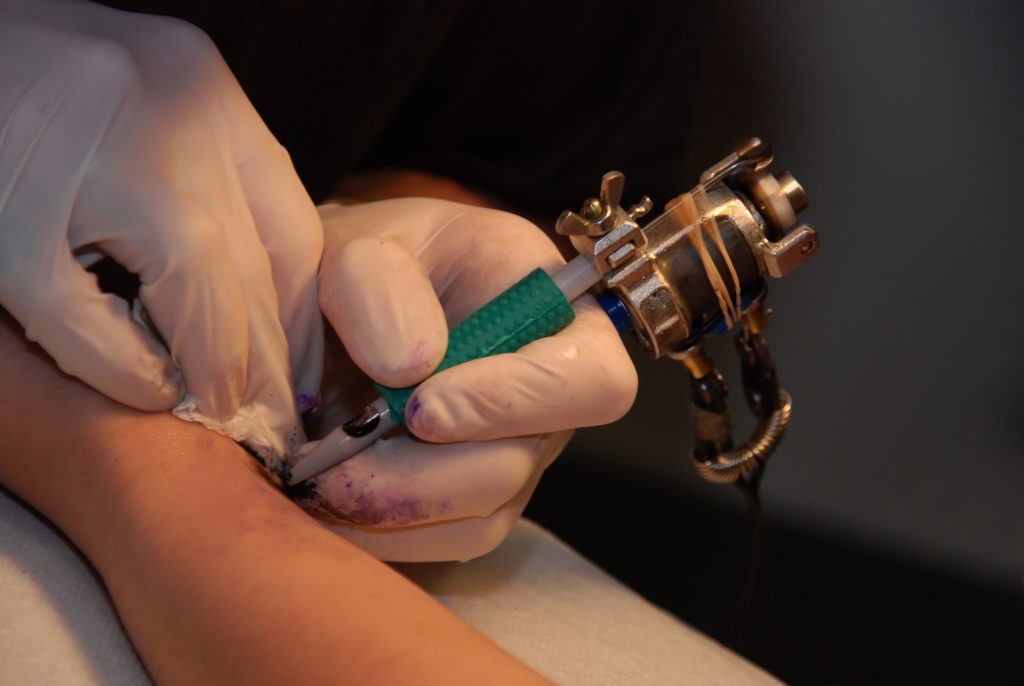
Can tattoos cause skin cancer? No, tattoos don’t cause skin cancer. Tattoos became more mainstream in the 1970s, but they’ve been around for much longer. Dermatologists have been examining and treating patients with tattoos for many years, and there is no discernible connection between tattoos and skin cancer. There’s also no connection between tattoos and recurrence in people who have had skin cancer. Even though tattoos don’t directly cause skin cancer, there are some points to consider if you’re thinking of getting a tattoo. Read on to learn more about tattoos and skin cancer with GentleCure.
Tattoos and Skin Cancer: What to Keep in Mind
One of the most important things to keep in mind about tattoos is placement. Getting a tattoo very close to or over a mole isn’t recommended. Having a clear view of your moles is important, especially when you consider the ABCDEs of skin cancer. The ABCDEs of skin cancer are based on visual signs associated with skin cancer, which include:
- Asymmetry
- Border
- Color
- Diameter
- Evolving
You should schedule an appointment with your dermatologist as soon as possible if you notice changes in any of the above-listed visual signs. Unfortunately, if you have a tattoo that covers one or more of your moles, you probably won’t be able to tell if it changes color, shape, etc. Additionally, tattooing over a melanoma scar isn’t recommended, because keeping an eye on the scar for signs of recurrence is crucial. The last thing you want to do is cover the area with ink, making it difficult for you or your dermatologist to see any troubling changes.
The Importance of Early Skin Cancer Detection
The American Cancer Society estimates that about 7,650 people will die of melanomas in 2022. They also estimate that about 2,000 people per year die from basal cell and squamous cell skin cancers. Usually, skin cancer is curable if it’s caught and treated early. Anything that delays detection is dangerous, such as a tattoo placed over a mole or a melanoma scar from a previous surgery. If you’re a person with multiple moles or you have atypical mole syndrome, you’ll need to think very carefully about where to place your tattoos or if they’re even worth it at all. Consult with your dermatologist for advice on tattoos and whether they’re safe for you.
Contact GentleCure for More Information
Annually, some 9,500 people across the U.S. are diagnosed every day with skin cancer. One out of every five people will experience skin cancer by the age of 70. Here at GentleCure, we’re passionate about providing you with information on skin cancer prevention, detection, and treatment. The typical treatment for most common skin cancers is surgery, which may be painful, leave a scar and limit daily activity. Advancements in technology mean there is now a surgery-free approach to skin cancer treatment with effective results . If you’ve been diagnosed with basal cell or squamous cell skin cancer, please contact a Skin Cancer Information Specialist at 855-936-4411 for more information or visit our Image-Guided SRT locations page to find a dermatologist that offers GentleCure.

